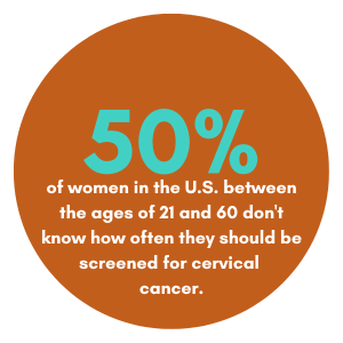|
One of the most important healthcare screenings a woman should undergo every few years is a Papanicolaou (Pap) smear. A Pap smear is a procedure that accurately tests for cervical cancer, which was one of the most common causes of cancer deaths in women until the Pap test was developed. Usually done in conjunction with a pelvic exam, a Pap smear involves collecting cells from the cervix, which is the lower, narrow end of the uterus at the top of the vagina and analyzing them for any abnormalities. Performed in your doctor’s office, a Pap smear only takes a few minutes, yet detecting cervical cancer early – or cervical cells that suggest cancer might develop in the future – provides you with a greater chance of timely treatment. In general, doctors recommend beginning Pap smear tests at age 21 and repeating it every three years for women ages 21 to 65. Women 30 years and over who combine a Pap smear with testing for human papillomavirus (HPV) – a sexually transmitted infection (STI) that can cause cervical cancer – can consider Pap testing every five years.
Although more frequent Pap testing may be recommended if you have certain risk factors, such as:
|
During your visit to the gynecologist, you will either be asked to undress completely or only from the waist down. You will then position yourself on your back on an examination table with your knees bent and your heels resting in stirrups (supports). Your doctor will gently inset a speculum, an instrument that holds the walls of the vagina apart, so that the doctor can see your cervix. Then, your doctor will gather a sample of your cervical cells using a soft brush and a spatula in what is a brief and painless procedure. Right after your Pap smear test, you can leave and resume your normal activities. In the meantime, your doctor will transfer the cell sample collected from your cervix to a laboratory, where it will be microscopically examined to look for any characteristics that indicate cancer or a precancerous condition. Within days, your doctor will share the results of your Pap smear test with you.
In order for your Pap smear test to be most effective, you should follow a few tips prior to your appointment:
In order for your Pap smear test to be most effective, you should follow a few tips prior to your appointment:
- Do not schedule your Pap smear during your menstrual period.
- Do not douche, take a bubble bath, or use any vaginal medicines or spermicidal foam, creams, or jellies for three days before the test, since these can wash away or obscure abnormal cells.
- You can shower, but don’t tub bathe for 24 hours before the test.
- Refrain from having intercourse for at least two days before the test.
- Let your doctor know about medications or conditions that may interfere with an accurate test.












